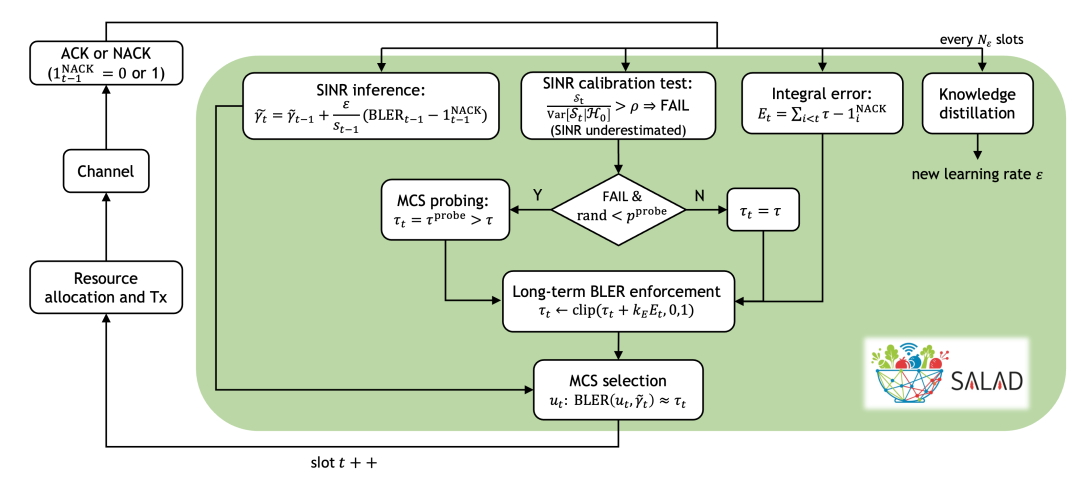SALAD: Self-Adaptive Link Adaptation

Adapting the modulation and coding scheme (MCS) to the wireless link quality is critical for maximizing spectral efficiency while ensuring reliability.
We propose SALAD (self-adaptive link adaptation), an algorithm that exclusively leverages ACK/NACK feedback to reliably track the evolution of the signal-to-interference-plus-noise ratio (SINR), achieving high spectral efficiency while keeping the long-term block error rate (BLER) near a desired target.
SALAD infers the SINR by minimizing the cross-entropy loss between received ACK/NACKs and predicted BLER values, with a learning rate that self-adapts online through knowledge distillation. Based on this inference, SALAD selects the MCS via hypothesis testing: if the SINR is likely underestimated, a higher MCS is selected to accelerate link adaptation under improving channel conditions. To prevent BLER drift from its long-term target, SALAD incorporates a feedback control loop that adjusts the instantaneous BLER target.
Over-the-air experiments on a 5G testbed demonstrate that SALAD consistently outperforms the industry-standard outer-loop link adaptation (OLLA). With a single set of parameters, SALAD achieves up to 15% higher throughput and spectral efficiency than multiple OLLA variants across different traffic regimes, while meeting the BLER target.
